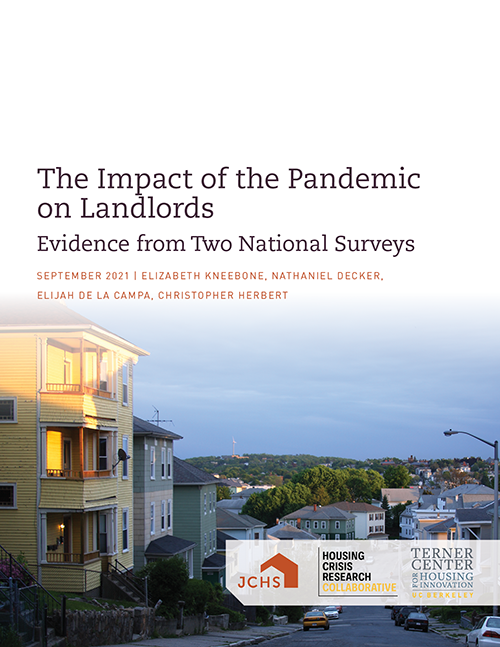The Impact of the Pandemic on Landlords: Evidence from Two National Surveys
The pandemic has resulted in profound economic hardship for US households, with millions losing their jobs, facing greatly curtailed hours, or unable to work due to the need to care for young children or vulnerable family members. The pandemic’s financial consequences have been disproportionately borne by the nation’s renters, who have been more likely to report lost income due to the pandemic and to miss housing payments as a result. These missed rental payments also have implications for the nation’s landlords, but much less is known about how they have fared and how they have responded to this significant shortfall in rent collections.
With limited data generally available on the characteristics of rental property owners, two recent national surveys provide valuable information about these owners and their practices. The findings from these studies yield insights for policy makers about the relationship between landlord management practices and tenants’ ability to weather a period of financial distress, as well as about the implications of the loss of rent and market disruption for the future financial stability of rental properties, particularly in communities of color and low-income neighborhoods.
This paper provides a synthesis of findings from these two surveys and identifies several key implications for policy makers regarding both current and longer-term efforts needed to support renters and stabilize rental markets through times of financial crisis.

